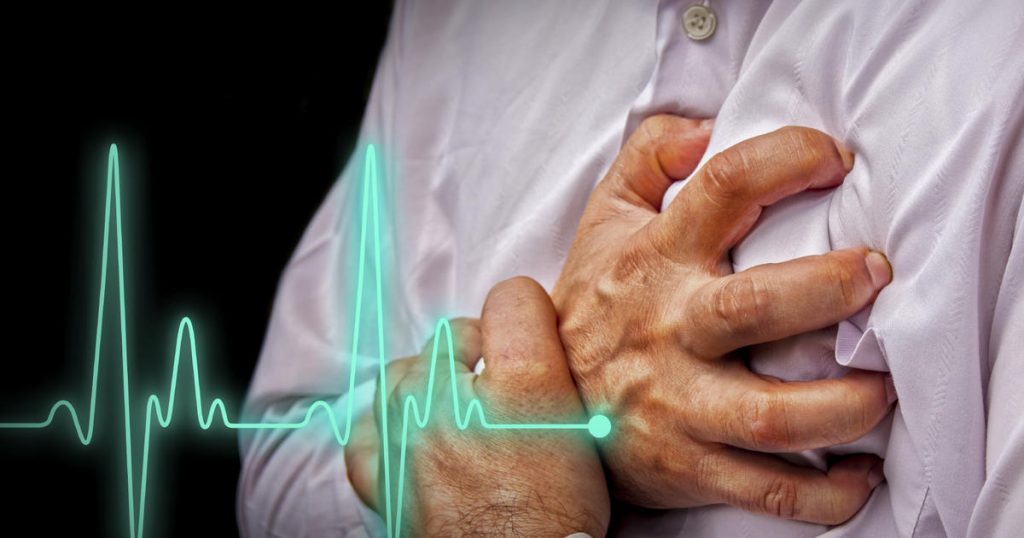World Malaria Day: Malaria is most commonly spread by a mosquito bite. Read here to know how to spot the first symptom of malaria and what you can do to prevent this disease.
April 25 is observed as World Malaria Day. Malaria is a disease caused by a parasite that is transmitted to humans through mosquito bite. People who have malaria usually have high fever, experience shaking chills and feel very sick. On the occasion of World Malaria Day, we take a look at common causes, signs and symptoms of malaria and top tips for prevention. Apart from fever and chills, malaria also causes headaches, nausea, vomiting, muscle pain, fatigue, chest pain, cough and sweating.
World Malaria Day: Causes of malaria and how to spot the first symptom
Malaria is most commonly spread by a mosquito bite. A mosquito becomes infected by feeding on a person who has malaria. When this mosquito bites you in future, it has the tendency to transmit malaria parasite to you. When these parasites enter your body, they travel to your liver where some of them can lie dormant for an entire year. When these parasites mature, they can infect red blood cells. This is the stage when people begin to develop symptoms of malaria.
At this stage, if an infected mosquito bites you, it becomes infected with malaria parasites and can spread them to other people it bites.
Malaria can also spread from mother to unborn child, through blood transfusions and by sharing needles used to inject drugs.
Malaria prevention
Malaria can be prevented by avoiding travelling to place where incidence of the disease is high – like tropical and sub tropical areas. Those who are at high risk of malaria include older adults, young children and infants, pregnant women and their unborn children, travellers coming from areas where there is no malaria.
In order to prevent malaria, make sure you wear clothes that cover you properly, especially if you are going to damp areas where mosquitoes can breed. Apply insect repellents on your skin and even on clothes. In times when malaria incidence is high in your surroundings, sleep under a net.
Anyone who exhibits signs of malaria should go for diagnosis immediately. A parasitological test is important for malaria diagnosis.
This World Malaria Day, make the effort of spreading as much awareness about malaria as possible and take up tips for prevention at all times.
Here’s How Eating Habits Can Help Manage Malaria Better: All About Malaria And Preventive Tips
People suffering from malaria can regulate the condition by a bringing a change in their eating habits. Here’s everything you need to know about malaria and tips for prevention.
Did you know? People suffering from malaria can regulate the condition by a bringing a change in their eating habits? A study has revealed that the time at which you eat your meal can play an important role in how the disease thrives in your body. The study reveals that malaria parasites in an infected mice’s blood scheduled their growth at the same time when the mice was fed. On changing the timing of mice’s meal, malaria parasites changed their timing of invading red blood cells accordingly.
The study was done by linking changes of blood sugar levels in mice to rhythms of malaria parasites. Researchers say that interfering with biological pathways of parasite rhythms through diet or manipulating them through drugs can help in reducing the severity of malaria and also prevent the infection from spreading further.
The study, conducted by University of Edinburgh, examined the timing of parasite rhythms in terms of their multiplication and invasion on red blood cells. Groups of mice infected with malaria were examined under the study.
The feeding time of mice was changed by making them eat during the day instead of night. This bought a change to the multiplication of parasites from night to day, syncing with the mealtime of mice.
Scientists are now working on examining the level of impact on parasites and which other biological mechanisms can control their rhythms. This will help in understanding better ways to tackle malaria.
World Malaria Day: Foods to eat and avoid during malaria
- Doctors suggest that oily and spicy foods should be avoided by people who are infected with malaria. Spicy and oily foods have the capability to interfere with digestion and delay the process of recovery.
- Malaria also interferes with one’s digestive process. Hence, consuming foods which are easy to digest is recommended in malaria. These foods include vegetable soups and khichdi among others. These foods also give a boost to your appetite.
- Besides, an infection like malaria takes a toll on the patient’s energy levels. Foods which give a boost to energy like glucose water, lemon water, nuts and fruits must all be consumed by people infected with malaria.
- Foods rich in probiotics help in maintaining gut health and speeds the process of recovery. Curd can be a good option for malaria infected people.
- Malaria medications leave a bad taste in mouth. This is one of the reasons why people don’t feel like eating when suffering the disease. Eating bland foods or cooking foods with fewer spices can be helpful in this case. Khichdi or dal rice can be good options for people suffering from malaria.
- Maintaining hydration levels are important if you are suffering from malaria. Drinking coconut water along with regular drinking water is highly recommended. Electrolyte balance in the body can be maintained by drinking lemon water with a little salt.Dr Gita Prakash, physician, gives a few tips to avoid an infection like malaria. The kind of clothing you wear plays an important role in how prone you are to be infected with malaria.
“Try and wear full sleeves clothes to keep the mosquito away from biting you. Dark coloured clothes should also be avoided if you have malaria infection. Also, malaria infected people should avoid going out in grassy and swampy areas at night. Children could wear a mosquito patch or apply gels on parts of the skin not covered by clothes. People should spray mosquito repellents and have mosquito coils outside and inside the rooms,” says Dr Gita.
She further suggests that people should avoid keeping any kind of clatter in the room. “Drop some kerosene oil in water which you use to sweep the floor. Avoid keeping any water or coolers inside the room. If you do have it, then cover it with a little oil which will act as a filter or a screen above water and prevent breeding of mosquitos,” she signs off.
(Dr. Gita Prakash is a Family Physician at Max Multi Speciality Hospital, Panchsheel Park)
Source: https://www.ndtv.com/health/world-malaria-day-how-to-spot-the-first-symptom-of-malaria-2027822
Disclaimer: All information, data and material has been sourced from multiple authors and is for general information and educational purposes only and are not intended to replace the advice of your treating doctor.
The views and nutritional advice expressed are not intended to be a substitute for conventional medical service. If you have a severe medical condition or health concern, see your physician.





